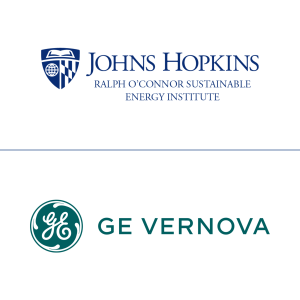Experts at the Ralph O’Connor Sustainable Energy Institute (ROSEI) are partnering with those at GE Vernova on a series of proposed projects to tackle some of the world’s most pressing problems related to climate change. The proposals, which are awaiting funding decisions from government agencies, pertain to ROSEI’s work on the grid, wind energy, and carbon management.
Collaborating with domestic green energy industry leaders such as GE Vernova is critical for ROSEI to provide the most beneficial impact for the US energy transition, according to Ben Schafer, the institute’s director.

ROSEI and GE Vernova and teaming up to find green energy solutions
“ROSEI focuses on translation and impact in addition to fundamental research and development (R&D), which is one of the many reasons why I’m excited about our growing relationship with GE Vernova,” Schafer said. “There is a clear alignment between the two organizations: GE Vernova is playing a crucial role in the energy transition and leveraging the latest research to do so, and here at ROSEI we’re focused on solving the same problems in similar ways and see enormous benefits in working together.”
The two groups first deeply connected at the 2023 ARPA-E Innovation Summit and have had multiple conversations led by Schafer and Chip Cotton, a GE Vernova account executive for energy R&D, and supported by Bill McNamara JHU’76, a member of ROSEI’s advisory council who worked at GE from 1981-1996 that is familiar with their products, technologies and business philosophy.
“Chip and Ben have been great at getting the right people introduced, and a lot of that comes down to open communication,” McNamara said. “I think another key has been having realistic talks. Looking at what government organizations like the Advanced Research Projects Agency–Energy (ARPA-E) and the Department of Energy (DOE) want, and how it fits into the research GE Vernova and ROSEI do, and not focusing on pie in the sky stuff.”
From GE Vernova’s perspective, working with experts at ROSEI is attractive for a multitude of reasons. Cotton mentioned that the scientific community respects Johns Hopkins’ research and its track record of producing accomplished and innovative students who he hopes will become familiar with GE through their involvement with ROSEI. The group was also impressed with ETCH, a company founded by ROSEI core researcher Jonah Erlebacher, during a recent tour of its Columbia facility.
“When an academic group has demonstrated the ability to be successful in spinning out companies, it’s always appealing to us,” Cotton said. “One of the harder things about working with academic institutions is you can get into situations where there is a lack of appreciation of what drives the market in terms of financial success. Organizations like ROSEI and Hopkins have demonstrated they understand those challenges and have mechanisms in place to stand up those companies, meaning we won’t have to do any sort of educating on how industry works.”
Although the partners’ work has not led to new funding yet, both parties are confident that they will be able to secure financial support in the near future with multiple proposals already under review. Schafer is encouraged by the speed at which the collaboration has come together and believes that this is the start of a productive relationship.
“These conversations have moved much more quickly than I thought they would because I’ve worked with industry my whole professional life, and usually getting on the same page can be a slow, arduous process,” Schafer said. “With GE, it has only taken a couple of meetings to have breakthroughs. It’s great, and just a lot more fun and productive. GE is a top-notch organization to be working with, and we’re excited to see where this takes ROSEI.”